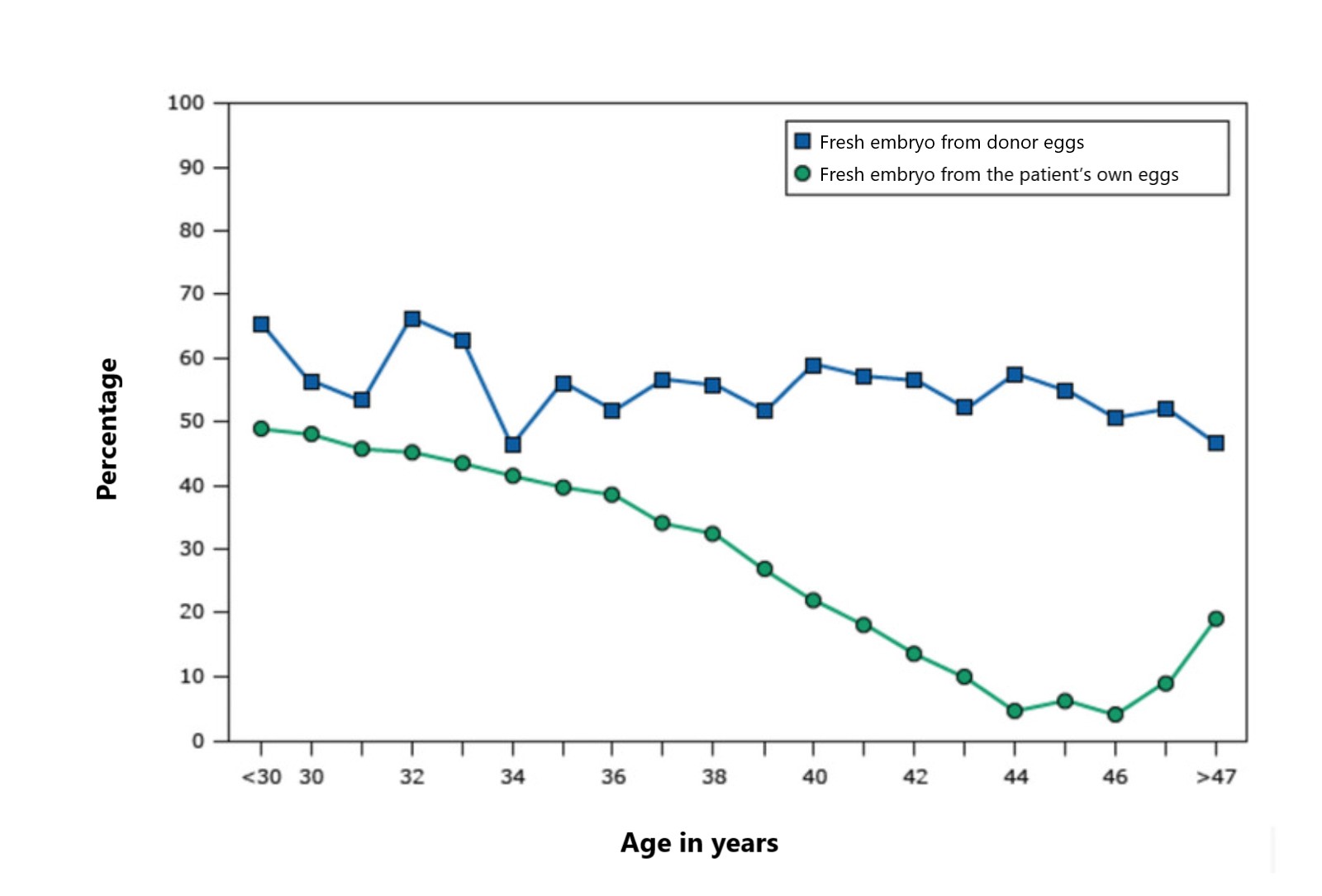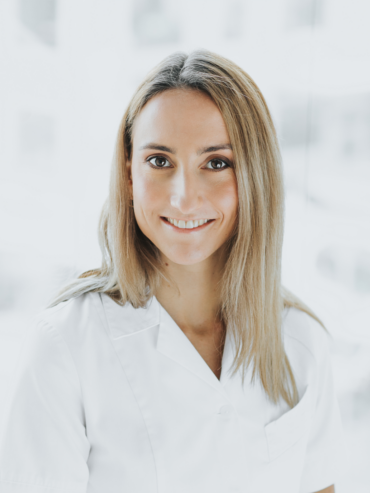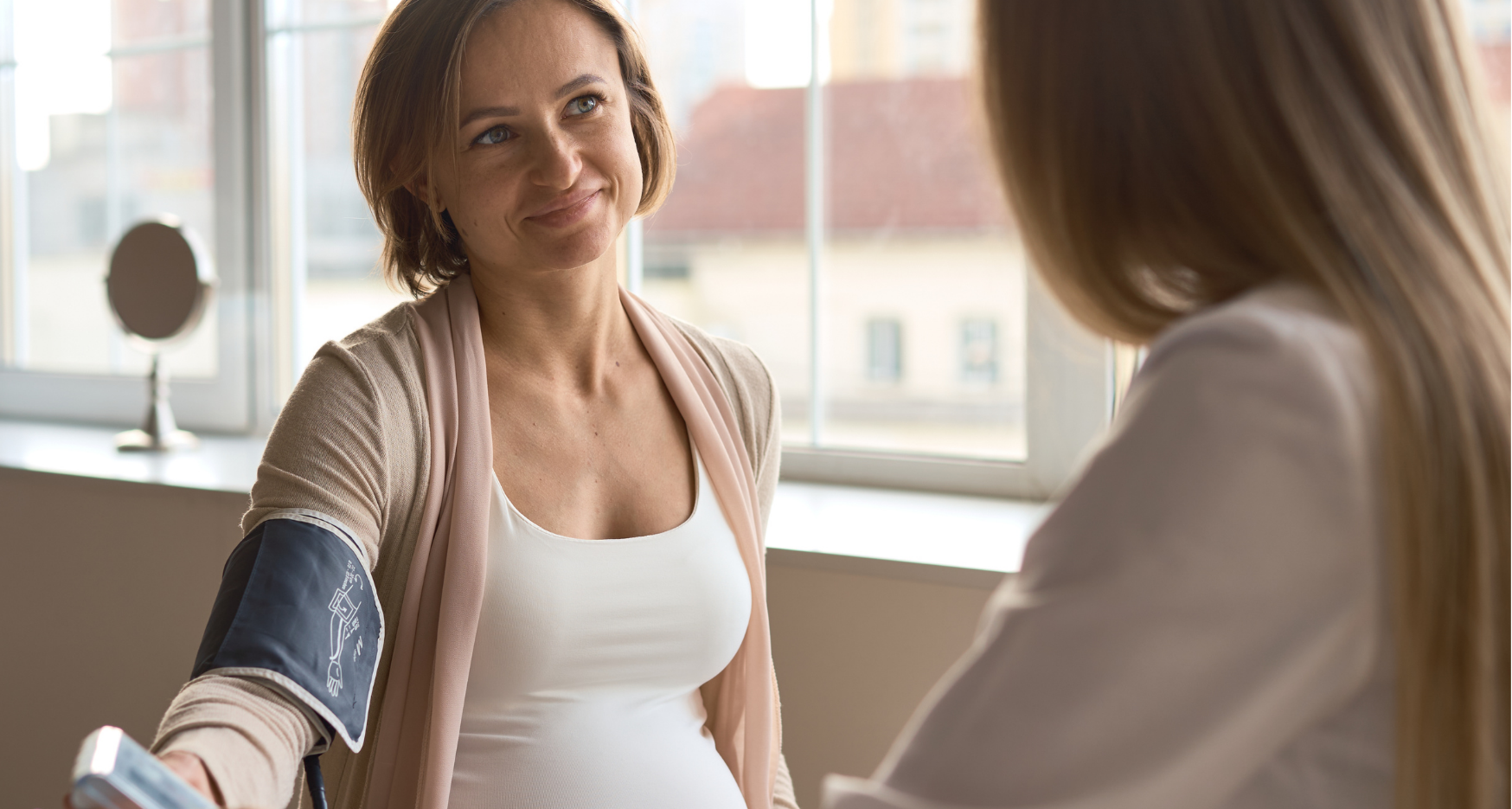The average age of first-time mothers in developed countries is on the rise, with many women wishing to start a family only after the age of 35. Dr Helen Liis, a gynaecologist at the Next Fertility Nordic,a fertility clinic, discusses the impact of delaying childbearing on a woman’s fertility and the risks associated with it.
The number of eggs decreases over time
“The fact that fertility decreases with age and that more women see an infertility doctor for fertility evaluation and treatment is widely known but still largely underestimated,” says Dr Liis.
“Gradual fertility decline begins at the age of 32. In women older than 43, natural pregnancies leading to childbirth are very rare, although there are exceptions,” she explained.
But why does a woman’s fertility begin to decrease with age? According to Dr Liis, there are various reasons for this. “Women are born with a certain number of eggs, and that number decreases over time. As the immature eggs divide into fertilisable cells, they are more likely to make mistakes as they age, leading to more eggs with chromosomal abnormalities,” she described.
A follicle mature for ovulation can be formed from both normal and defective cells. “As age increases, more eggs with chromosomal abnormalities ovulate, reducing the likelihood of conception, increasing the risk of miscarriage and the risk of chromosomal abnormalities in pregnancies,” said Dr. Liis.
“In addition, the impact of harmful habits and environmental factors, such as smoking and obesity, accumulate with age, and older women are more likely to have had surgery or treatment that damages their ovarian reserve,” she noted.
Due to the decline in the quality and number of eggs, the average time it takes to conceive naturally gets longer. “The ability to conceive within one menstrual cycle starts to decline significantly in the early 30s and accelerates even more from the age of 37,” she said.
Age also plays a role in in vitro fertilisation (IVF)
If natural conception is unsuccessful, in vitro fertilization (IVF) often comes to the rescue, said Dr Liis. However, age also plays a decisive role in the success of IVF.
“Compared to women under the age of 37, the success rate of IVF using a woman’s own eggs is significantly lower in her late 30s and early 40s. Age plays a minor role in the use of donor eggs, so using donor eggs to have a child is a good option for women who are no longer able to have a child using their own eggs,” she described.
| Age | Probability of live birth per IVF cycle |
| <35 | 52% |
| 35–37 | 38% |
| 38–40 | 24% |
| 41–42 | 10% |
| >42 | <5% |

Age is the most important prognostic factor
Although there are sensitive laboratory tests to assess fertility and ovarian reserve (such as anti-Müllerian hormone, AMH), age is the most reliable independent prognostic factor that determines the likelihood of both spontaneous conception and successful infertility treatment, according to Dr Liis.
“Even with normal laboratory results, achieving pregnancy and carrying a healthy pregnancy to term can be challenging for women over 40. In contrast, younger women may have better chances of getting pregnant and succeeding in infertility treatment even with a low ovarian reserve found upon examination,” she said.
Nevertheless, women with low ovarian reserve should hurry to conceive, as the time to have the desired offspring may be limited.
How long to wait before fertility testing and infertility treatment?
While waiting for natural conception without additional testing and treatment is recommended for younger patients and for up to one year, women aged 35 and older should have their fertility and possible causes of infertility evaluated if pregnancy has not been achieved within six months. Women aged 40 and older should have their fertility evaluated immediately when the desire to get pregnant arises.
“Earlier consultation is also necessary for women with other risk factors affecting fertility, such as endometriosis, previous pelvic surgery and infections or male infertility,” Dr Liis gave examples.
If a woman up to the age of 35 fails to conceive within a year, the probability of natural conception is only two percent each month. “As age increases, this probability decreases even further up to the age of 44, and for older women the probability of conception is practically nonexistent. Therefore, a long wait-and-see tactic is only suitable for women who do not want to or cannot continue with infertility treatment, for example, for financial reasons,” explained Dr Liis, adding that in Estonia, infertility treatment is free of charge for all women up to the age of 41 who are insured with the Estonian Health Insurance Fund.
Infertility treatment options as you get older
For women under 35 years of age, whose cause of infertility remains unexplained after examinations, the likelihood of getting pregnant with ovarian stimulation and intrauterine insemiation (IUI) is up to 30 percent in three treatment cycles instead of two percent.
“After the age of 35, the effectiveness of IUI decreases and IVF is the quickest method with the best chance of success. In addition, with IVF, any remaining embryos can be frozen and used in the future,” she said.
The success of IVF with a woman’s own eggs decreases with age, especially from the age of 40. “For those aged 35 and older who no longer have sufficient ovarian reserve for infertility treatment, IVF with donor cells is recommended, as is considering alternative family planning methods such as adoption,” said Dr Liis.
How does IVF increase the chances of getting pregnant as you get older?
With IVF stimulation, more eggs mature in one cycle than during a natural menstrual cycle. During egg fertilisation, more embryos develop at the same time and are monitored in the laboratory during the first few days of development before being transferred to the uterus. “Better developing embryos are more likely to be genetically healthy. Therefore, after IVF embryo transfer, the likelihood of pregnancy and live birth is higher,” said the gynaecologist.
The likelihood of pregnancy can also be increased before embryo transfer by genetic testing of the embryos for chromosomal abnormalities (preimplantation genetic testing and diagnosis, PGT-A).
“This way, it is more likely to avoid transferring embryos to the uterus that would not result in pregnancy due to chromosomal abnormalities – this would result in either a miscarriage or the development of a foetus with chromosomal abnormalities,” she explained.
However, if the ovarian reserve is very low, the chance of a woman achieving pregnancy with her own eggs through IVF is only about 4%. “In cases of low ovarian reserve, repeated unsuccessful IVF cycles and other unfavourable circumstances that affect the likelihood of IVF success, achieving a desired pregnancy is more likely through the use of donor eggs,” Dr Liis explained.
When embryos obtained from donor eggs are transferred, the chances of a woman having a live birth are higher than when using her own eggs, at about 50%. “With repeated transfers, the success rate of the treatment can reach up to 80%,” she added.

There are ways to preserve fertility
It is possible to preserve fertility for those who want to postpone pregnancy until later in the future but are worried about age-related fertility decline. This can be done by freezing eggs and embryos.
“Embryo freezing is the gold standard for preserving fertility, and the success of infertility treatment with later embryo transfer is comparable to that of fresh embryo transfer,” said Dr Liis.
However, she emphasised the importance of understanding the medical and social consequences that come with later parenthood. “As we get older, there are more pregnancy complications, and there may be difficult situations and unexpected events when raising children,” she said.
Freezing eggs for fertility preservation at a later age without medical indication is a growing trend, with increasing evidence of the expected effectiveness and safety based on data from frozen donor egg banks.
“It is important to note that since donor eggs are mostly collected from women under 35, there is little information on effectiveness and safety for those over 35,” she said. However, this does not mean that the eggs of women older than 35 cannot be frozen for fertility preservation.
“However, it must be taken into account that the effectiveness of the method decreases with age, the risks increase and the financial aspect is also important; obtaining a sufficient number of eggs may require more stimulation cycles and expensive treatment may not always lead to the desired pregnancy in the future,” she noted.
Awareness of the impact of age on fertility is low in society
According to Dr Liis, awareness of the impact of age on fertility could be better and should start from school education. “It could be as important as teaching contraceptive use,” she said.
Scientific studies have also found that women and men underestimate the impact of age on fertility. “One US study of 600 female medical professionals found that almost half of participants would have made different reproductive decisions if they had known more about fertility and infertility earlier in their careers,” Dr Liis pointed out.
Even doctors may lack knowledge about age-related changes in fertility. “An Italian study surveyed 156 gynaecologists who did not specialise in infertility treatment and found that half of those surveyed thought that a woman’s reproductive age could last until the age of 50 and that artificial insemination at an older age is more effective than it actually is,” she noted.

